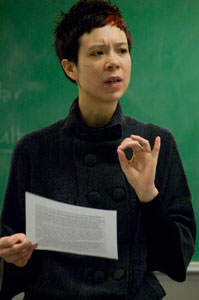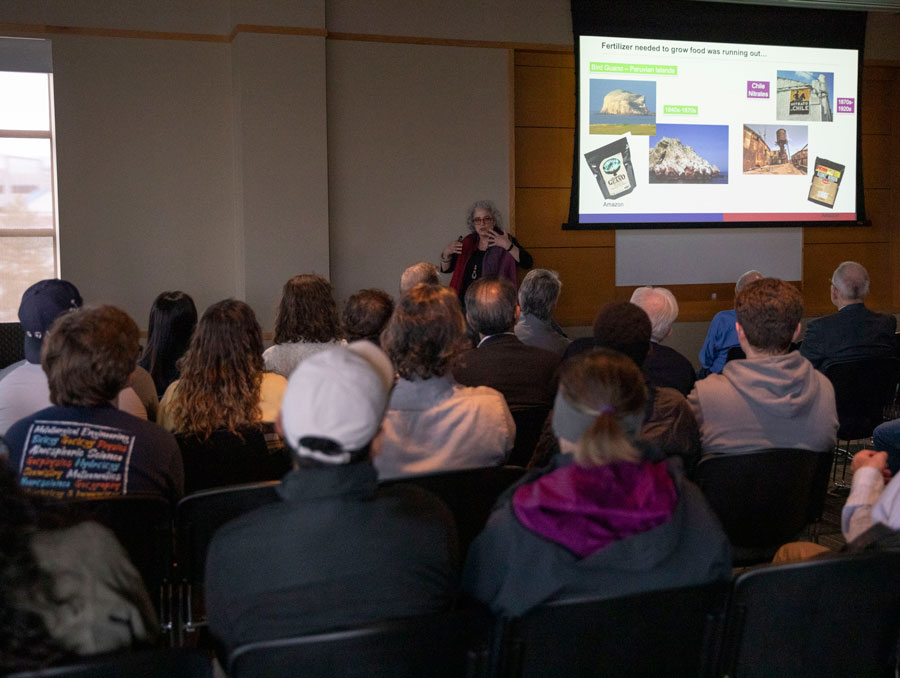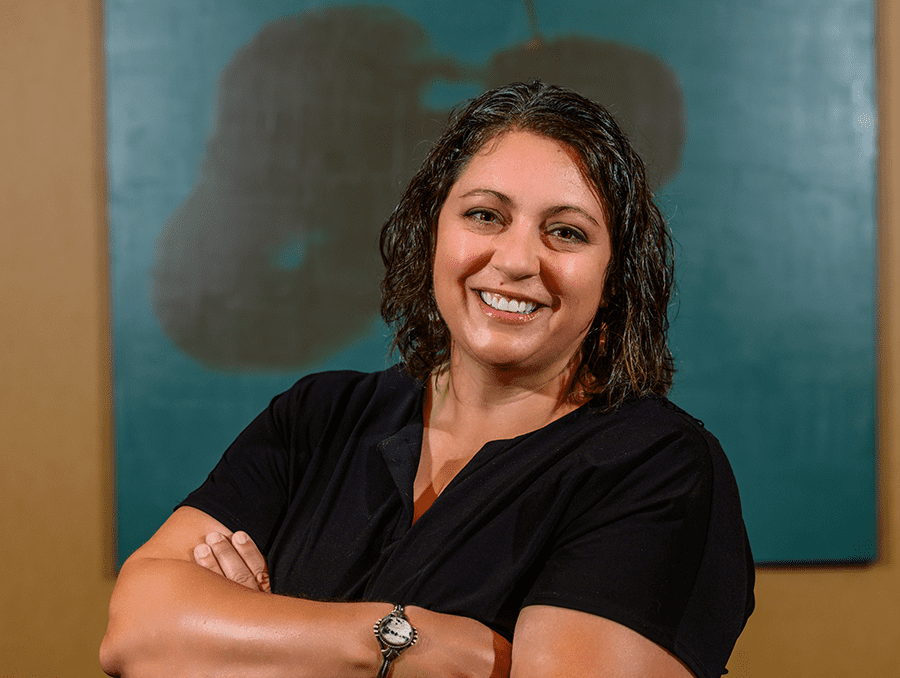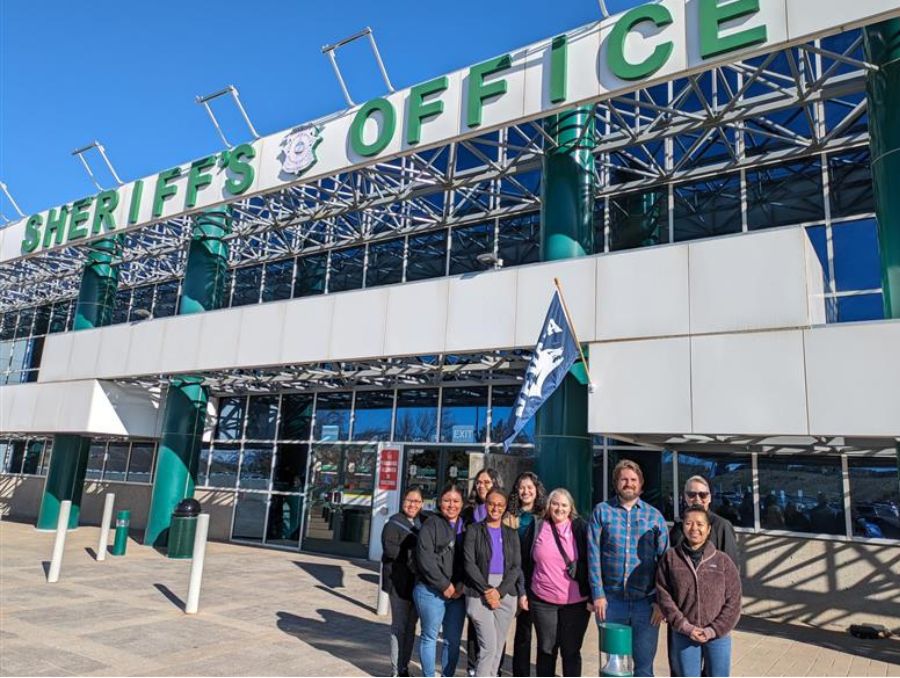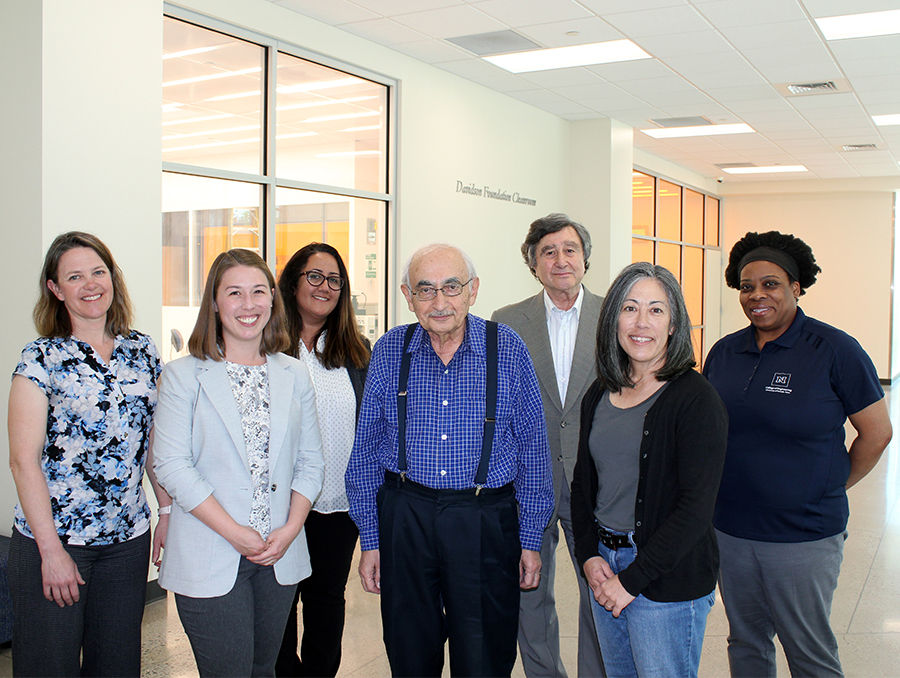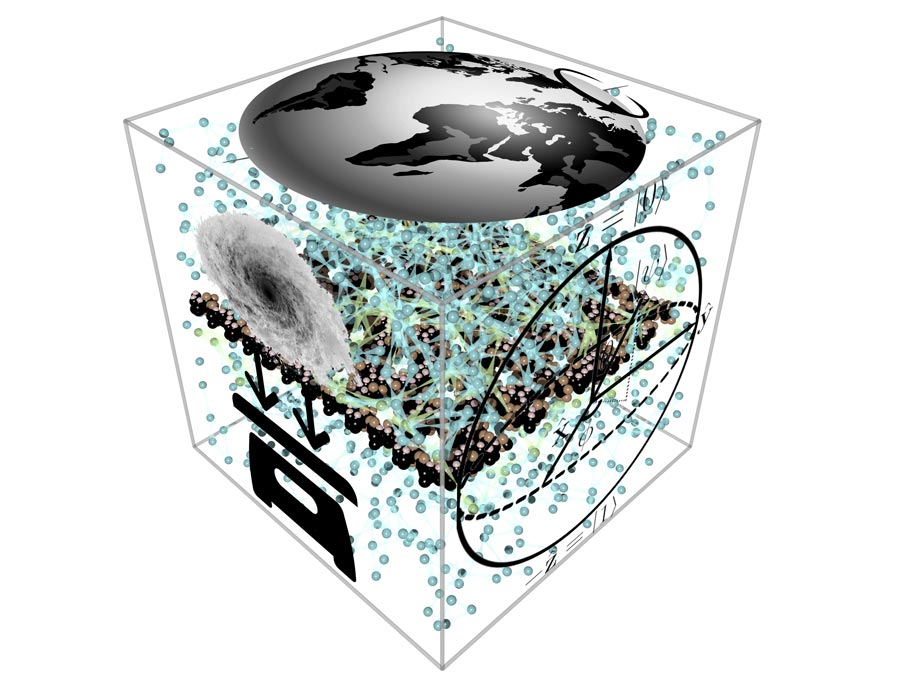Forget the idea of the professor as the stuffy old man with the tweed jacket and the elbow patches. Imagine a professor who looks more like a graduate student but whose academic and professional ambitions mirror that of the most accomplished faculty member.
This is Nadine Attewell, an English assistant professor poised to publish one book that questions issues of national identity in Great Britain’s former colonies and is beginning another that focuses on the science fiction genre and its implications on citizenship and nationhood. She represents the new brand of the professor: chic, controversial, and cerebral.
Discovering a new home
Attewell came to the University of Nevada, Reno nearly two years ago after a year at Macalester College, a private liberal arts college in St. Paul, Minn. The Vancouver native received her bachelor’s degree from the University of Toronto in Canada and her master’s and doctorate degrees from Cornell University. Given the choice between the University and another institution, Attewell was drawn to the University almost immediately.
“I chose to come here just because of the great faculty that I met here,” Attewell said. “It seemed like a collegial and welcoming place.”
Attewell was also attracted to the connection the University has with the community as a land grant institution and the hardworking students she encountered.
“I like being part of that commitment to the community that being at a land grant institution entails,” Attewell said. “I’ve also been impressed by the students’ openness to challenge, even when many of them work up to 40 hour weeks.”
While Attewell took to the University quickly, the transition to living in Reno was a challenge. Still Attewell is fascinated by the city. Living near downtown and without a car, she is exposed daily to “diners and tattoo parlors.”
“I’ve really been struck by what a mix Reno is,” Attewell said. “It’s not always pretty but it also has a kind of natural beauty. I’m really enjoying being back amongst mountains. It’s nice to look out my window and see the mountains since I grew up with that.”
Delving into the past: Research in postcolonial literature
Attewell is working on two books that focus on postcolonial, indigenous and genre fiction. The first is based on her dissertation at Cornell University in 2003, which was about 20th century literature and the reconstruction of Great Britain’s, Australia’s and New Zealand’s national identity after the collapse of the British Empire. Attewell discovered that one of the ways national identity was discussed and restructured was through population control using contraception or reproduction.
“I’m interested in what happens when writers, politicians, scientists and other thinkers turn to reproduction as a way of rethinking or trying to change the nation,” Attewell said. “How is national identity in these places being reimagined through these kinds of projects during and after the breakup of the British empire?”
British colonies residents had British citizenship when the empire was still secure but once the empire disintegrated, Great Britain retracted the citizenship. It was then only available to those whose fathers were British-born.
Attewell became interested in the idea of British national identity after reading “Voyage in the Dark” by Jean Rhys, a Caribbean native. The main character, a Caribbean immigrant, becomes pregnant by a British gentleman and has an abortion. Attewell questioned how abortion was discussed when the novel was published. She found that the abortion issue was very much alive in the 1930s but for different reasons than its present controversy.
“It had much more to do with the health of the nation and the British race,” Attewell said. “It was a question of ‘who do we want producing the next generation of citizens? Do we really want poor people, indigenous people, and people of color reproducing the nation?’ That book started me thinking about the different ways in which people thought about reproduction in the 1930s and the way in which it opens up question of national identity and composition.”
The second book deals with 20th century science and fantasy fiction and how they coincide with issues of colonialism. Attewell also took note that indigenous writers from the former British colonies began to produce science fiction, which is generally assumed to have been produced and consumed solely by white men.
“I’m interested in if this genre is engaged with issues of difference, otherness, contact and displacement,” Attewell said. “I think there are obvious parallels with the encounters we see in science fiction and colonial encounters. I’m also kind of excited about this because I’m a big reader of science fiction.”
Attewell’s excitement about the reading is matched by the challenge of justifying the genre as scholastically worthy and proving that not all science fiction is produced and consumed by white men.
“Science fiction has tended to feel like the preserve of male writers, white writers,” Attewell said. “Think about this image of the sci-fi geek. I think it’s a false one. I’m a good example: I’m a woman.”
Attewell’s work on the two books is personally poignant as a British citizen from Canada in the process of becoming an American. Attewell’s father is British and her mother is from Hong Kong. If it were the other way around, she would not be a British citizen.
“I’m interested in the serendipity of that, what it means to have one kind of identity and not another as a direct result, in some ways, of British colonialism,” Attewell said. “I’ve also recently been thinking about national identity because…I’m going through the immigration process myself.”
Attewell is a perfect example of how the issues she is researching are still prevalent to this day. And that’s something Attewell wants her students and readers to understand.
“I think the way in which national identity in Australia, New Zealand, and Britain got reconfigured still has consequences,” Attewell said. “I think [the book] can provide a different set of questions or a different way of thinking about the issues that continue to be prominent in our political culture. The second book, I hope, will force people to think about the genre in a different way…that it offers us different ways of thinking about identity.”
